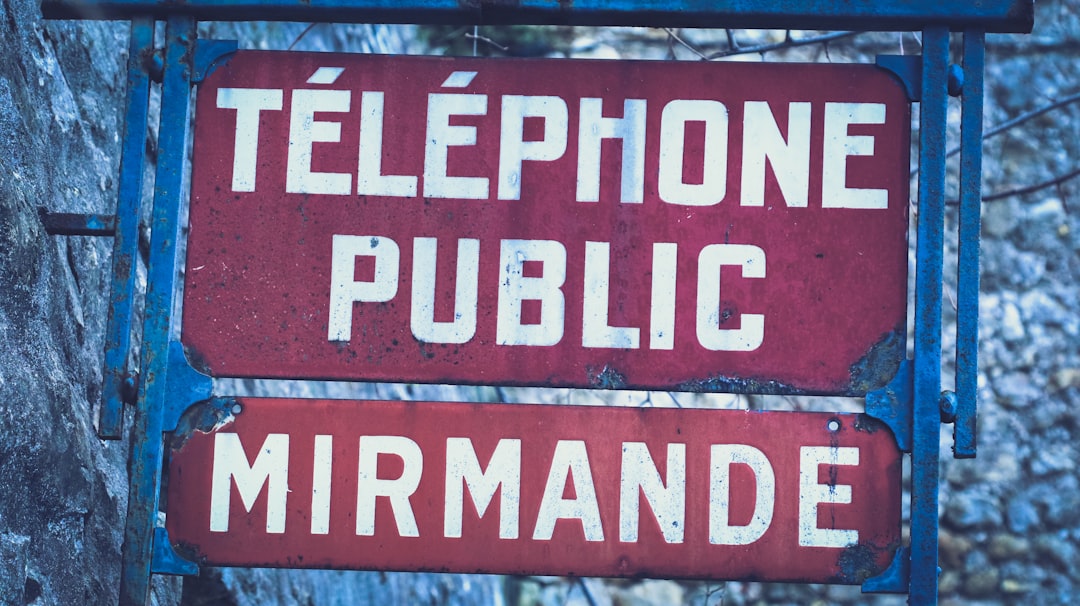In the late 1990s and early 2000s, as mobile communication boomed, Nebraska faced a surge in unsolicited text messages (spam). This prompted legislative action, leading to the emergence of Spam Text Lawyer Nebraska and Spam Call Attorneys Nebraska advocating for consumer protection laws. Over time, legislation evolved to address advanced spamming techniques, with specialized law firms continuing to play a crucial role in protecting residents from deceptive messaging practices. Nebraska's proactive approach includes specific laws against SMS spam and robust mechanisms for consumers to report and block unwanted messages, with key focus areas being Spam Text Lawyer Nebraska, Spam Call Lawyers Nebraska, and Spam call law firms Nebraska.
In the digital age, Nebraska has witnessed a significant evolution in its approach to spam text messages. This article delves into the historical overview of spam text legislation in the state, from the early days of mobile communication to the current landscape. We explore key milestones, including the emergence of the first spam text laws and legal battles won by spam text lawyers in Nebraska. Additionally, we analyze evolving regulations targeting modern spamming techniques and the role of spam call law firms in consumer protection. Understanding Nebraska’s journey highlights the ongoing need for effective spam text attorney services to safeguard consumers from unwanted messages.
Early Days of Mobile Communication and Spam in Nebraska: A Historical Context

In the early days of mobile communication, Nebraska, like many other states, faced a nascent challenge—spam text messages. As cell phones became more prevalent in the late 1990s and early 2000s, unsolicited text messages started inundating users’ devices. These initial spam texts were often promotional offers or advertisements, sent en masse by businesses hoping to reach a wide audience. With limited regulatory frameworks in place, Nebraskans found themselves overwhelmed by these unwanted messages, prompting the need for clear guidelines and legal intervention.
Spam text lawyer Nebraska and spam call attorneys Nebraska became essential advocates as the state navigated this new digital landscape. Early legal efforts focused on consumer protection, with the introduction of laws that banned certain types of spam calls and texts. These measures aimed to empower citizens by providing them with tools to block or report intrusive messages. Over time, as technology evolved, so did the legislation, reflecting the growing complexity of spamming tactics employed by unscrupulous actors. Today, Nebraska’s spam call law firms continue to play a vital role in shaping and enforcing regulations that protect residents from annoying and deceptive messaging practices.
Emergence of the First Spam Text Legislation: Protecting Consumers in the Digital Age

In the early 2000s, as digital communication became ubiquitous, so did the proliferation of unwanted and deceptive messages known as spam. Recognizing the growing concern among Nebraska residents and businesses, state legislators took a pioneering step by introducing the first-ever Spam Text legislation in 2003. This groundbreaking move aimed to protect consumers from unsolicited text messages, often containing malicious links or advertising, that flooded their devices daily. The law, which specifically targeted spam text messages, marked a significant shift in the state’s approach to consumer privacy and digital rights.
The Emergence of Spam Text Legislation in Nebraska was prompted by the unique challenges posed by the digital age. With advancements in technology, spammers found new ways to reach people through text messaging, taking advantage of the direct and personal nature of this communication channel. As a response, Spam Text Lawyer Nebraska and Spam Call Lawyers Nebraska began advocating for stricter regulations. These legal professionals played a pivotal role in shaping the state’s spam call law firms, ensuring that businesses and residents had recourse against persistent and nuisance messages. Over time, Nebraska’s spam text legislation evolved to keep pace with technological advancements, providing much-needed protection for its citizens in the digital landscape.
Legal Battles and Case Studies: How Spam Text Lawyers in Nebraska Made a Difference

The battle against spam text messages has been a significant legal and consumer protection issue in Nebraska. Over the years, Spam Text Lawyers and Spam Call Attorneys in this state have played a pivotal role in shaping legislation and protecting residents from unwanted and fraudulent text messages. One notable aspect of their work is the numerous legal battles they’ve fought to establish clear guidelines and restrictions on spam calls.
Case studies highlight successful outcomes achieved by these Nebraska-based lawyers. They have argued cases that led to groundbreaking decisions, such as limiting the circumstances under which businesses can send mass text messages and holding violators accountable. These attorneys have also assisted consumers in seeking justice for unauthorized or misleading text messaging practices, resulting in substantial settlements and heightened awareness of consumer rights regarding spam text messages. Their efforts have contributed to a more stringent Spam Call Law environment in Nebraska, ensuring that residents’ privacy is respected while promoting ethical business practices.
The Evolution of Laws: Enhancing Regulations to Combat Modern Spamming Techniques

Over time, as technology advanced and spamming techniques became more sophisticated, the laws in Nebraska evolved to enhance regulations aimed at combating modern spamming practices. The initial focus was primarily on telephone spam, or unsolicited telemarketing calls, which led to the implementation of the Telephone Consumer Protection Act (TCPA) in 1992. This legislation empowered consumers with tools to opt-out of such calls and imposed penalties on violators.
With the rise of digital communication and text messaging, the definition of spam expanded to include SMS spam or unsolicited text messages. In response, Nebraska’s laws were updated to include specific provisions against sending commercial text messages without prior consent. This shift required businesses and organizations to obtain explicit permission from recipients before engaging in promotional text campaigns. The increasing complexity of spamming strategies prompted a collaborative effort between legal experts, tech professionals, and policymakers to stay ahead of emerging threats, ensuring that Nebraska’s legislation remains effective in protecting residents from unwanted and deceptive communication practices.
Current Landscape: Nebraska's Approach to Spam Call Law Firms and Consumer Protection

In Nebraska, the current landscape regarding spam text and consumer protection is shaped by a combination of state laws and federal regulations. The state has taken a proactive approach to combating unwanted spam calls and texts, with specific legislation targeting telemarketers and spam text lawyers. Nebraska’s Spam Call Law Firm regulations are designed to protect consumers from aggressive sales tactics, ensuring that businesses operating within the state adhere to strict guidelines. This includes restrictions on automated calling systems, do-not-call lists, and requirements for clear and concise disclosures.
Consumers in Nebraska who face persistent or abusive spam calls can seek legal recourse through specialized Spam Text Lawyers in the state. These Spam text attorneys are equipped to handle cases involving unwanted texts, misrepresented marketing practices, and violations of consumer privacy rights. With the rise of digital communication, the need for such legal expertise has become more pronounced, driving a demand for professionals who specialize in navigating Nebraska’s evolving Spam Call Law Firm regulations and advocating for the rights of affected individuals.






